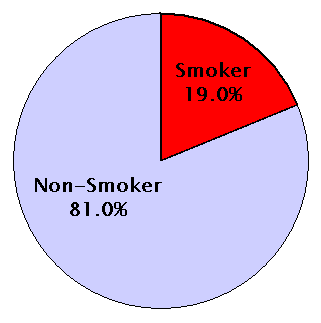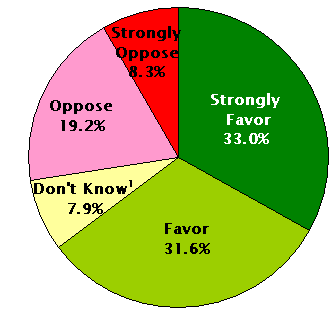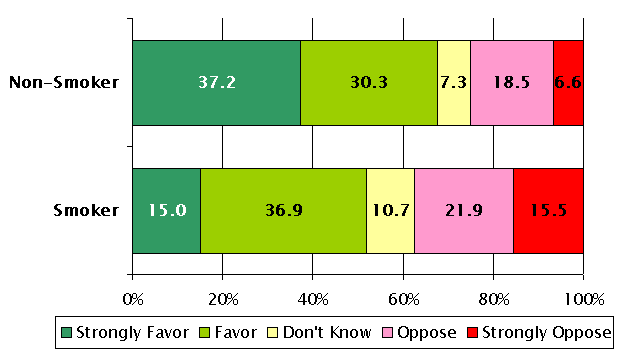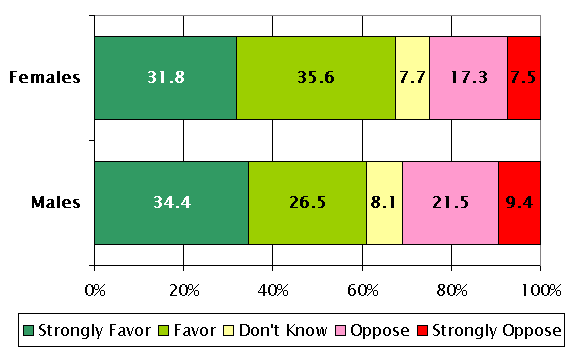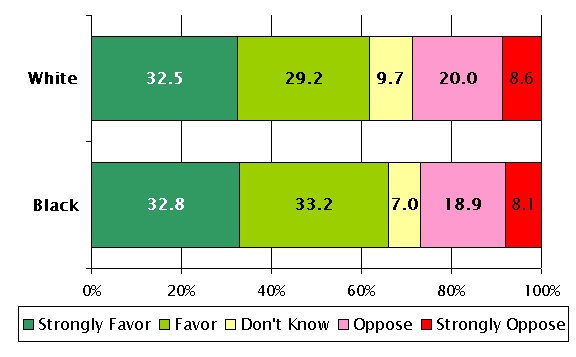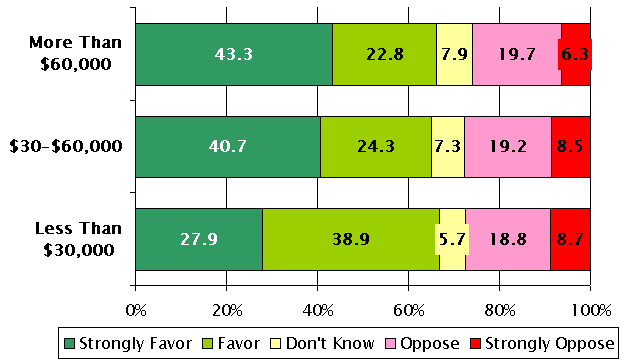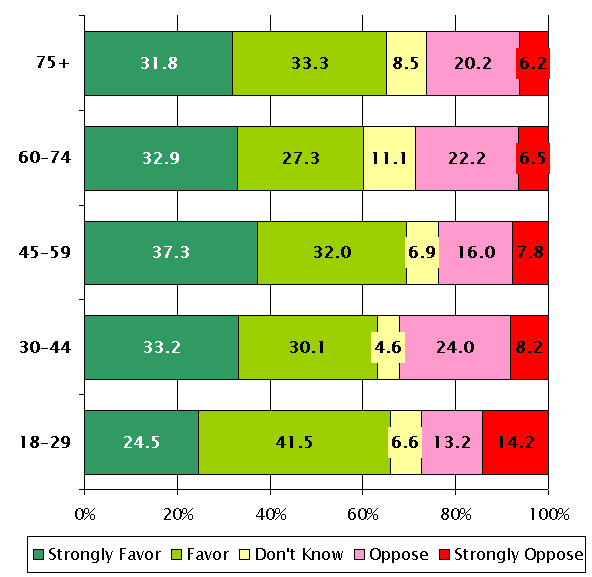
MISSISSIPPI DELTA RESIDENTS' PERCEPTIONS OF
LEGISLATION TO LIMIT SMOKING IN PUBLIC PLACES
by Alan W. Barton, Ph.D.
From the 2007 Delta Rural Poll
Conducted January 2007
| Smoking Behavior | ||
|
|
|
According to the 2007 Delta Rural Poll, 81% of Delta residents are non-smokers, while 19% currently smoke tobacco on a regular basis. |
|
Opinions of Smoking Bans |
||
|
|
Nearly 65% of
Delta residents indicated that they support a municipal ordinance to ban
smoking in their community; one-third of all respondents strongly favor
such measures, and 31.6% favor anti-smoking ordinances. Less than 30% of Delta residents oppose smoking bans; 8.3% said they strongly oppose anti-smoking legislation, and 19.2% indicated they oppose these measures. |
|
| The strength of support is an important indicator of attitudes; those that indicate strong support or strong opposition are more likely to take action defending their position. In this case, 33.0% strongly support anti-smoking ordinances, while only 8.3% strongly oppose smoking bans. | ||
|
|
||
| Smokers' and Non-Smokers' Attitudes | |
|
|
Among smokers, over half support
ordinances to limit smoking in public places in their community. About
equal numbers strongly favor (15.0%) and strongly oppose (15.5%) a smoking
ban in their community. Among non-smokers, two-thirds support a smoking ban, and 37.2% strongly support an anti-smoking ordinance. One-quarter of non-smokers oppose anti-smoking legislation, and only 6.6% strongly oppose a smoking ban.
|
| Attitudes by Gender | |
|
|
Two-thirds of female
respondents indicated they support smoking bans in their communities,
compared to slightly more than 60% of males. A higher percentage of males
indicated strong support for smoking bans, however. A greater proportion of male respondents said they oppose smoking bans, and a higher percentage of males also strongly oppose smoking bans. |
| Attitudes by Race | |
|
|
Black Deltans showed a slightly higher rate of support for smoking bans than white Deltans, and whites show slightly more indecision. The percentages of Black and White Deltans that strongly support smoking bans is about equal, as is the percent who strongly oppose smoking bans. |
| Attitudes by Income | |
|
|
About 65% of Deltans support smoking bans, regardless of income level; however, a substantially higher percentage of high income Deltas strongly favor anti-smoking ordinances in their community. High income residents are also slightly less likely to oppose smoking bans. Over 40% of middle income Delta residents also support anti-smoking legislation. |
| Attitudes by Education | |
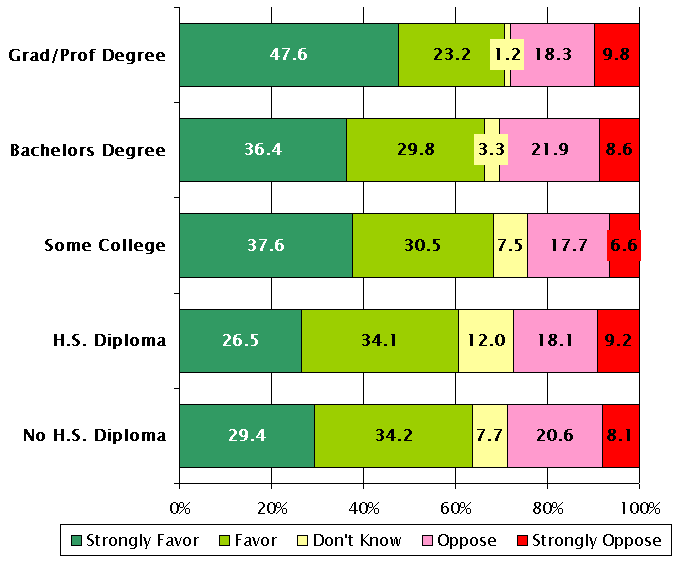 |
Delta residents with some college support anti-smoking ordinances at a higher rate than those with a high school education or less. Moreover, a higher percentage of those with some college strongly support smoking bans, and nearly half of the respondents with a graduate or professional degree strongly support legislation to limit smoking in public places. Over 70% of the respondents with the most education favor smoking bans, but this group also has the highest percentage that strongly opposes smoking bans, although less than 10% of respondents at all educational levels indicated they strongly oppose anti-smoking ordinances in their community. |
|
Attitudes by Age |
|
|
|
Middle-aged Deltans (45-59) showed the greatest support and strong support for smoking bans. The youngest adults (18-29) showed the lowest level of strong support and a substantially higher rate of strong opposition to anti-smoking legislation, but overall two-thirds of the respondents in this age category supported smoking bans. The lowest level of support was in the 60-74 age group, at just over 60%. The highest opposition was in the 30-44 age group, with one-third of respondents in this age category indicated they opposed anti-smoking ordinances. |
|
Notes: Data for the 2007 Delta Rural Poll were collected in January, 2007. A total of 1,005 randomly selected Delta residents completed the questionnaire. The Delta Rural Poll surveyed residents of eleven counties in northwestern Mississippi: Bolivar, Coahoma, Humphreys, Issaquena, Leflore, Quitman, Sharkey, Sunflower, Tallahatchie, Tunica and Washington. Surveys were conducted by telephone and respondents were selected using random digit dialing techniques. Responses were weighted using the 2000 U.S. Census as a baseline, to account for skewed gender and race characteristics. |
